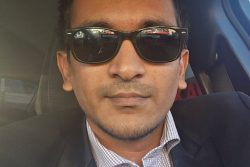HONG KONG (Reuters) – Hong Kong is poised for a showdown with China when the Chinese parliament meets later today, with the largely rubber-stamp body likely to snuff out hopes for a democratic breakthrough in the regional financial hub at elections due in 2017.
Political reform has been a constant source of friction between Hong Kong’s pro-democracy movement and the mainland since the former British colony was handed back to Communist Party rulers in 1997.
On the surface, the National People’s Congress will likely make a landmark ruling by endorsing the framework for the first direct vote by a Chinese city to choose its leader. Beijing is already hailing it as a milestone in democratic reform.
However, Beijing will tightly curb nominations for the 2017 leadership poll to filter out any candidates it deems unacceptable, said a person with knowledge of the electoral framework. Only two or three “patriotic” candidates will be allowed on the ballot and open nominations will be ruled out. Instead, candidates must be backed by at least 50 per cent of a 1,200-person “nominating committee.”
That committee is meant to be “broadly representative” of Hong Kong interests, but will be similar in composition to an existing election committee stacked with pro-Beijing loyalists.
It’s a formula that will rile Hong Kong’s pro-democracy activists, who plan to blockade the city’s Central business district in the coming weeks.
On Saturday, Hong Kong’s public broadcaster RTHK said 5,000 police will be deployed for the “Occupy Central” protest, heightening the sense of unease. The city’s 28,000-strong police force is already on high alert. An initial protest planned for this evening will be the start of what activists and lawmakers have described as a “full-scale, wave after wave” civil disobedience campaign.
Hong Kong’s democracy advocates remain deeply distrustful of Beijing despite assurances from the mainland.
“Even if we accept a fake democracy model, there’s no assurance at all, that for the next vote, there’ll be real democracy,” said Lee Cheuk-yan, a pro-democracy lawmaker.
Wang Zhenmin, a prominent legal scholar and Chinese government adviser who was flown to Hong Kong by the Chinese Ministry of Foreign Affairs to talk about the 2017 election, said it is time for “practical and realistic steps.”
“Less perfect universal suffrage is better than no universal suffrage. Leave some room for future growth,” he said.
The proposed electoral framework will still have to be endorsed by two-thirds of Hong Kong’s 70-seat legislature. With pro-democracy lawmakers holding more than a third of the seats, the proposal will likely be shelved. “We will not accept such a model of fake democracy, and we will vote it down,” Lee said.
Senior Chinese officials have repeatedly warned activists against their “illegal” protests and say they won’t back down.
Some key members of the pro-democracy movement, including media magnate Jimmy Lai, have also come under pressure in the run-up to the Chinese parliamentary decision.





